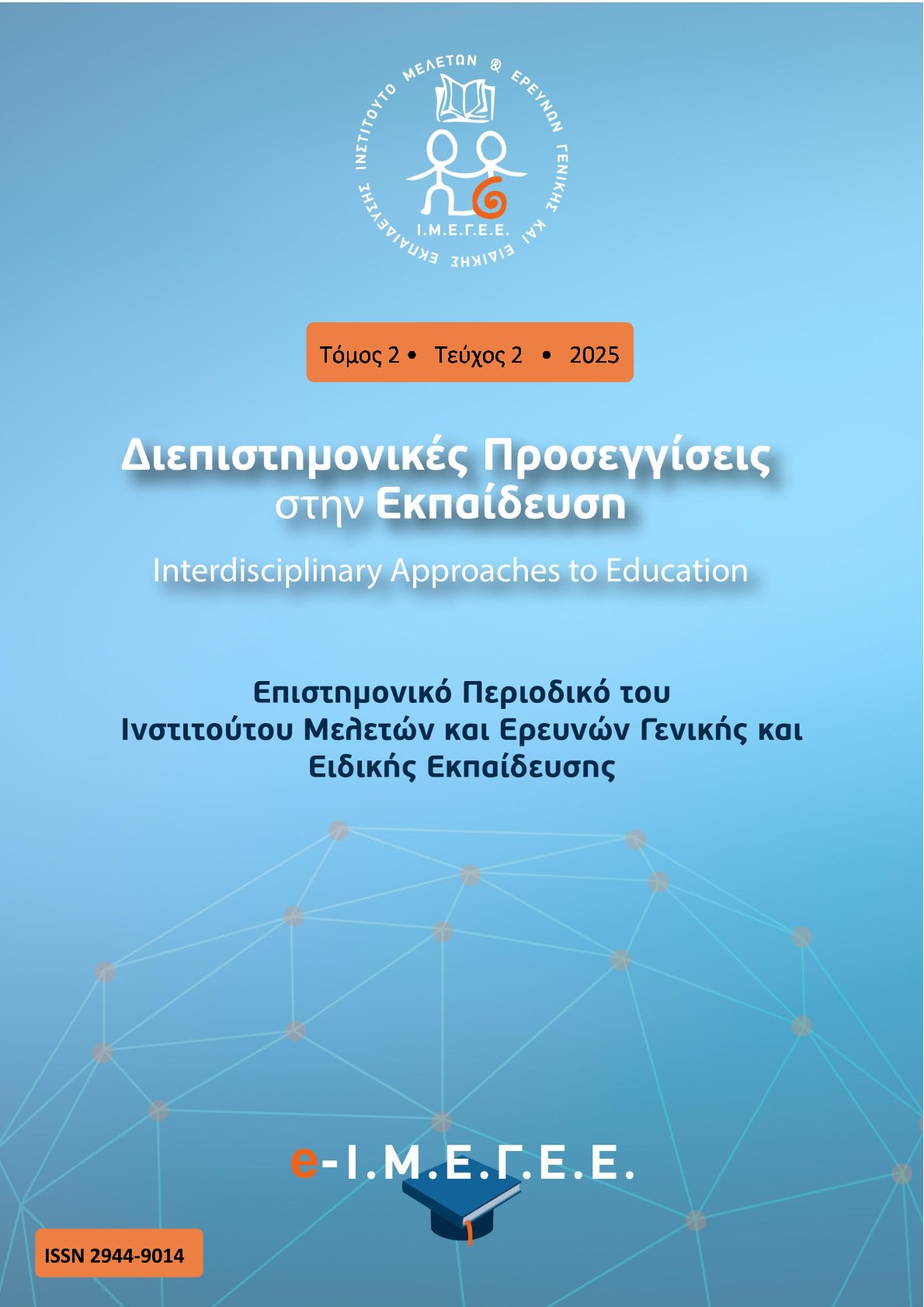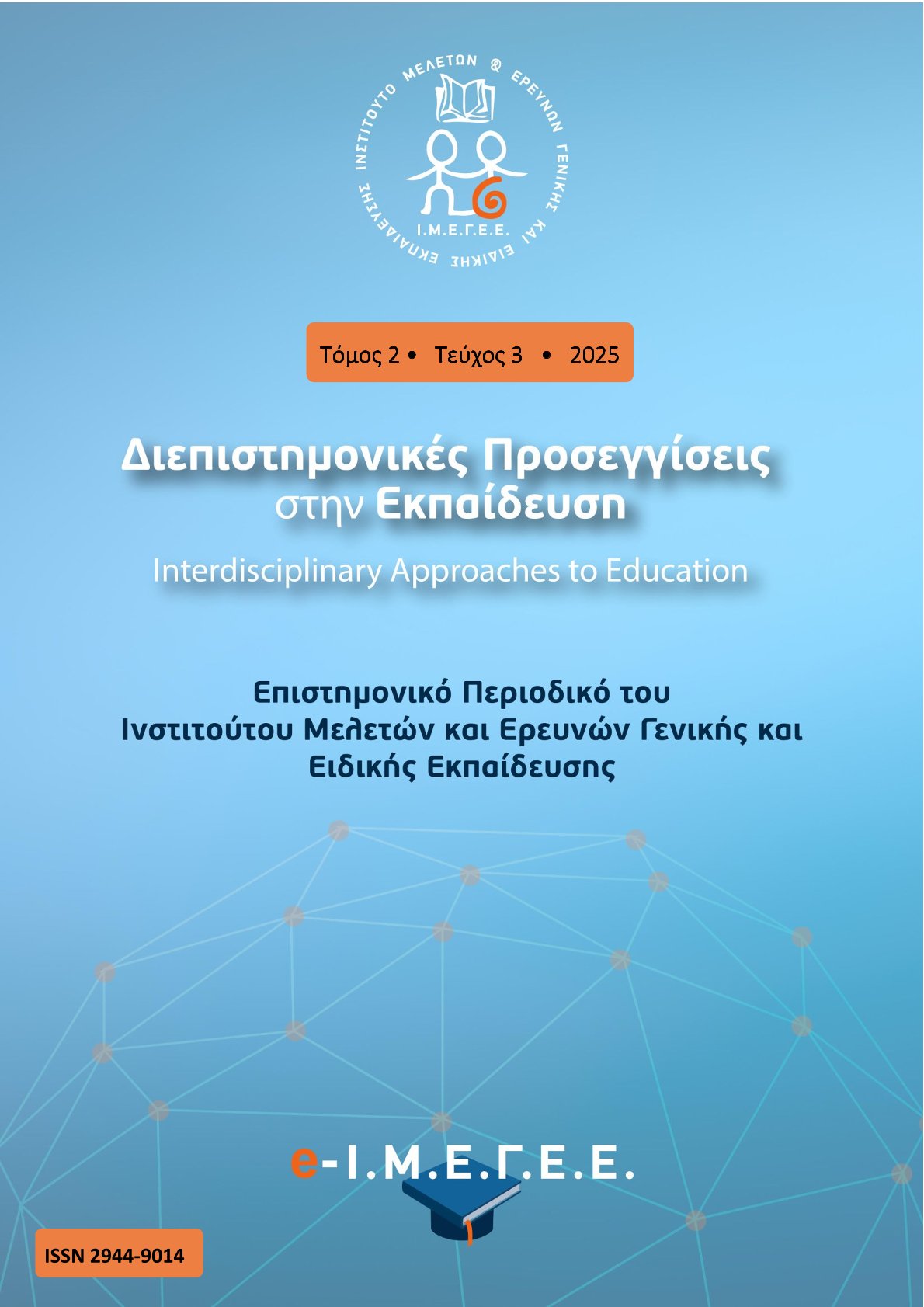Seeking Job Satisfaction: The Experience of the employees of Interdisciplinary Evaluation, Vocational Guidance and Support of Athens III

Abstract
Job satisfaction is a much-discussed concept that has been widely studied because of its strong link to productivity, self-efficacy and personal progress of employees. The present study investigates the degree of job satisfaction of the employees of Interdisciplinary Evaluation, Vocational Guidance and Support (KE.D.A.S.Y.) of Athens III, of the Regional Directorate of Primary and Secondary Education of Attica. For the purpose of the study, the Job Satisfaction Survey (JSS) scale by Paul E. Spector was used. The scale is divided into nine subscales measuring the dimensions of job satisfaction (pay, promotion, monitoring/supervision, privileges/benefits, potential rewards, operating conditions, colleagues, nature of work, communication). The sample of the survey consisted of 68 employees of the KE.D.A.S.Y. of Athens III, who completed the questionnaires, which were distributed by the researchers in paper form from June 2023 to May 2024. The results revealed that the employees of the KE.D.A.S.Y. of Athens III have a moderate degree of job satisfaction. Moreover, there are differences in the degree of job satisfaction of employees depending on their professional profile. In particular, regarding the satisfaction that these employees derive from the various aspects of their work, it emerged that the employees of the KE.D.A.S.Y. appeared particularly satisfied with their supervisor, the nature of their work, cooperation and communication with their colleagues. The aspects of their work that employees are dissatisfied are financial remuneration, benefits and promotion opportunities. Further investigation of the variation in the levels of job satisfaction of the employees and the differences in relation to their professional characteristics revealed that teachers working in KE.D.A.S.Y. derive statistically significantly lower overall satisfaction than their colleagues who are members of the special education staff. Teachers' satisfaction was also found to be statistically significantly lower on the dimensions of pay, benefits and potential rewards and the nature of their work. In addition, permanent staff of the KE.D.A.S.Y. showed statistically significantly lower job satisfaction than their colleagues who are substitutes. Statistically significantly lower satisfaction was found among permanent staff in relation to the dimensions of job satisfaction related to pay, benefits and contingent rewards.
Article Details
- How to Cite
-
Σιόλου Ε., & Γεωργοπούλου Σ. (2025). Seeking Job Satisfaction: The Experience of the employees of Interdisciplinary Evaluation, Vocational Guidance and Support of Athens III. Interdisciplinary Approaches to Education, 2(2). https://doi.org/10.12681/.41612
- Section
- Articles
Ενημέρωση για τα πνευματικά δικαιώματα
Οι συγγραφείς των άρθρων που δημοσιεύονται στο περιοδικό διατηρούν τα δικαιώματα πνευματικής ιδιοκτησίας επί των άρθρων τους, δίνοντας στο περιοδικό το δικαίωμα της πρώτης δημοσίευσης. Άρθρα που δημοσιεύονται στο περιοδικό διατίθενται με άδεια Creative Commons 4.0 και σύμφωνα με την άδεια μπορούν να χρησιμοποιούνται ελεύθερα, με αναφορά στο/στη συγγραφέα και στην πρώτη δημοσίευση για μη κερδοσκοπικούς σκοπούς και με δικαίωμα τροποποίησης μόνον με παρόμοια διανομή (αν αναμείξετε, τροποποιήσετε, ή δημιουργήσετε πάνω στο υλικό, πρέπει να διανείμετε τις δικές σας συνεισφορές υπό την ίδια άδεια όπως και το πρωτότυπο).
Απαγορεύεται η αντιγραφή, αποθήκευση και διανομή της παρούσας εργασίας, εξ’ολοκλήρου ή τμήματος αυτής, για εμπορικό σκοπό. Επιτρέπεται η ανατύπωση, αποθήκευση και διανομή για σκοπό µη κερδοσκοπικό, εκπαιδευτικής ή ερευνητικής φύσης, υπό την προϋπόθεση να αναφέρεται η πηγή προέλευσης και να διατηρείται το παρόν µήνυµα. Ερωτήματα που αφορούν τη χρήση της εργασίας για κερδοσκοπικό σκοπό πρέπει να απευθύνονται προς τους συγγραφεα-είς. Οι απόψεις και τα συμπεράσματα που περιέχονται σε αυτό το έγγραφο εκφράζουν το-ους συγγραφέα-είς και δεν πρέπει να ερμηνευθεί ότι αντιπροσωπεύουν τις επίσηµες θέσεις του Ινστιτούτου Μελετών και Eρευνών Γενικής και Ειδικής Εκπαίδευσης (Ι.Μ.Ε.Γ.Ε.Ε.).
Copyright notice
Authors retain copyright and grant the journal right of first publication with the work simultaneously licensed under a Creative Commons Attribution NonCommercial License that allows others to share the work with an acknowledgement of the work's authorship and initial publication in this journal.



